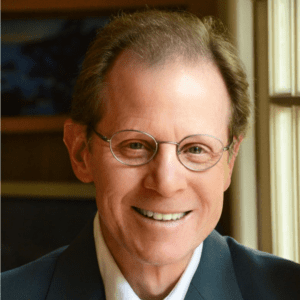It’s one thing to throw around the scientific-sounding language of brain science, it’s another to actually develop concrete clinical procedures based on our advancing understanding of the brain that make therapy more effective. Dan Siegel, author of Mindsight and one of the pioneers in the field of interpersonal neurobiology, organizes his assessment procedures with new clients not around coming up with a DSM diagnosis, but in finding what specific impairments in brain integration should be the focus of treatment.
In this brief video clip, Dan describes an eventful first session with an emotionally disconnected attorney who announces, “I feel kind of like I’m dead even though I’m alive . . . I wonder if there’s any way I can feel more alive.” Dan describes the procedure he uses to examine the various domains of brain integration to understand the limits of the man’s present functioning and what therapy might have to offer him. Ultimately he announces to the man, “I have a feeling that you’ve been living with half a brain. It’s the half that doesn’t let you feel things . . . I don’t know if you need to live life like that.”
For Dan, the goal of therapy is to help clients balance the conflicting pulls towards both chaos and rigidity within themselves. “Sometimes we move toward rigidity—we feel stuck,” he writes in his Mindsight. “Other days we lean toward chaos—life feels unpredictable and out of control. But in general, when we are well and at ease, we sense the familiar but are not trapped by it. We live life as it unfolds, moment by moment, in a flowing journey between rigidity and chaos.”
Rich Simon
Richard Simon, PhD, founded Psychotherapy Networker and served as the editor for more than 40 years. He received every major magazine industry honor, including the National Magazine Award. Rich passed away November 2020, and we honor his memory and contributions to the field every day.
Dan Siegel
Longtime Psychotherapy Networker contributor Daniel J. Siegel, MD, is a graduate of Harvard Medical School and completed his postgraduate medical education at UCLA with training in pediatrics and child, adolescent, and adult psychiatry. He is currently a clinical professor of psychiatry at the UCLA School of Medicine, founding co-director of UCLA’s Mindful Awareness Research Center, founding co-investigator at the UCLA Center for Culture, Brain and Development, and executive director of the Mindsight Institute, an educational center devoted to promoting insight, compassion, and empathy in individuals, families, institutions, and communities. Dr. Siegel’s psychotherapy practice spans thirty years, and he has published extensively for the professional audience. He serves as the Founding Editor for the Norton Professional Series on Interpersonal Neurobiology which includes over 70 textbooks.













